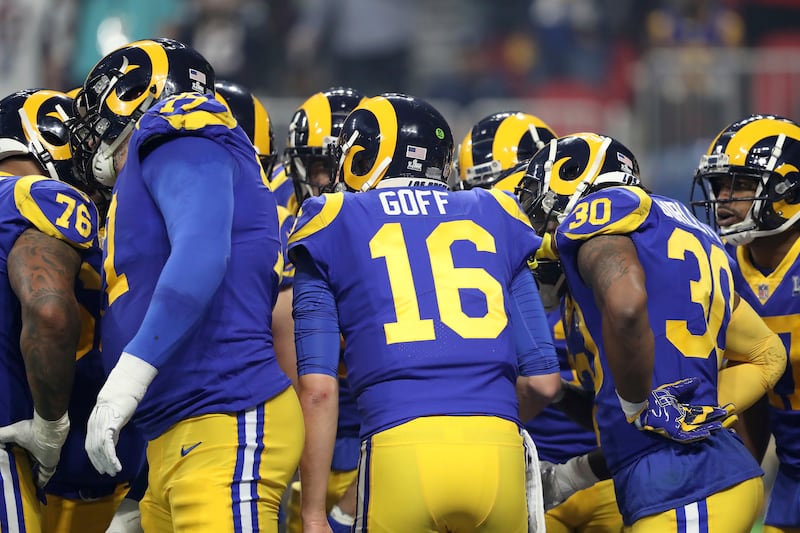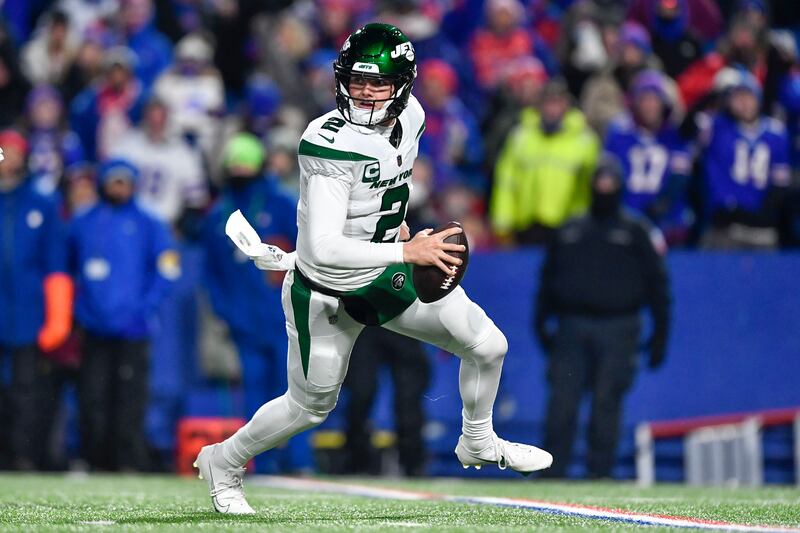On the surface it appears that Joe Burrow’s appearance in the Super Bowl will be the first of many to come. This was only his second year in the league, so it stands to reason that he will return to the big stage many more times.
The quarterback himself said as much after Sunday’s narrow Super Bowl loss to the L.A. Rams: “You like to think that we’ll be back in this situation multiple times over the course of the next few years.”
But that’s probably not what will happen. Two things are working against him: the NFL’s salary cap and the way the league rewards quarterbacks. The best chance for any team to reach the Super Bowl is when the quarterback is working on his rookie contract. After that, teams are obligated to reward quarterbacks with rich contract extensions, which means less money to build the rest of the team.
Patrick Mahomes took the Kansas City Chiefs to the Super Bowl title in his third year in the league. Months later, Mahomes, who was playing on his rookie contract (a four-year, $16 million bargain), was given a new 10-year $503 million contract extension. The Chiefs returned to the Super Bowl a year later and lost, and this season they took another small step backward by losing in the conference championship.
Russell Wilson took the Seattle Seahawks to a Super Bowl championship in his second year. Like the Chiefs, they returned to the Super Bowl a year later and lost. With Wilson entering the final year of his four-year, $3 million rookie contract, the Seahawks gave him a four-year contract for $87.6 million in the off-season. They haven’t returned to the Super Bowl since then.
Ben Roethlisberger took the Pittsburgh Steelers to the Super Bowl and a victory in his second year in the league while still playing on his rookie contract of four years and $22 million. The Steelers gave him a big extension — six years, $88 million. He took the team to two more Super Bowl appearances, the last time in 2011 (a loss), and he played out the last 11 years of his career without a return to the big game.
Eli Manning took the New York Giants to the Super Bowl and a victory in his fourth season (2007) when he was still on his rookie contract. He was awarded a huge contract extension — six years, $97.5 million. He made one more Super Bowl (four years later) and played the last 10 years of his career without another appearance.

Jared Goff took the L.A. Rams to the Super Bowl in his third season, and a few months later the Rams awarded him a huge contract extension — four years, $134 million — in September 2019. Two years later the Rams traded Goff to the Lions for Matt Stafford and returned to the Super Bowl with their new quarterback. The Rams gambled everything to win this year, trading for Von Miller, Odell Beckham and Stafford, and they have huge salary cap problems to resolve in the offseason (they reportedly will be $13.6 million over the salary cap in 2022).
Cam Newton took the Carolina Panthers to the Super Bowl in his fifth year in the league just seven months after signing a five-year, $104 million-dollar extension. The Panthers haven’t returned in the six years since then and as the team declined so did Newton’s performance. He has struggled to find work at times since then.
Now there’s Burrow showing up in the Super Bowl in his second season still working on his rookie contract, a bargain-basement four-year, $36 million deal. Burrow was the 19th highest paid quarterback in the league at a little more than $8 million for the 2021 season. Stafford, his Super Bowl counterpart, was paid $20 million. CBA rules don’t allow a contract extension until after his third season in the league. The Bengals have to make the most of Burrow’s rookie contract to build a team around him; they can start by shoring up an offensive line that allowed Burrow to be sacked a combined 16 times the last two games.
Rich quarterback contracts might explain why Aaron Rodgers and Brett Favre won only one Super Bowl each, or why Dan Marino appeared in the Super Bowl his second season and never again. Tom Brady of course is the outlier — he and his team kept winning long after he started signing contract extensions. At times, Brady also agreed to have his contract restructured to give the team more money to spend at other positions.

All of this puts pressure on teams to win with young quarterbacks. The New York Jets have never been able to make this happen even though they have chosen six quarterbacks in the first two rounds of the last 16 drafts. They used the second overall pick of the 2021 draft to choose BYU’s Zach Wilson and agreed to a contract with a cheap cap hit of about $8 million. They won only four games. If Wilson doesn’t play well the next few years, the Jets of course won’t have to pay him a huge contract, but they won’t be any closer to winning, either.
Look around the league at what percentage of a team’s salaries were devoted to the quarterback position in 2021: The Packers and Falcons — about 24%; the Vikings 22%; the Texans almost 20%; the Titans almost 19%; the Cowboys, Chiefs, Seahawks all in the 17% range. The two Super Bowl teams — Rams and Bengals — were 11% and 4%, respectively.
Through accounting wizardry — back-loaded contracts, deferred payments, etc. — teams can reduce the cap hit. Mahomes NFL-high contract is heavily backloaded — it barely affected the 2020 and 2021 team cap — but eventually it will cause the team painful cap issues and players will have to be moved. According to the Kansas City Star, since 1995 the highest percentage of a team’s salary cap any Super Bowl-winning quarterback has occupied is 12.2% (Tom Brady, 2018), and three quarterbacks have won while taking less than 1% of the cap (Brady in 2001, Wilson in 2013 and Nick Foles in 2017.)
The Bengals will have to be creative when it comes time to give Burrow another contract. Meanwhile, Burrow says, “We’ve got so much talent that is going to be around next year and so, I feel like we are really not going to skip a beat and coming in next year ready to come back.”
He might be right about that. Next season will be Burrow’s last on a rookie contract.


